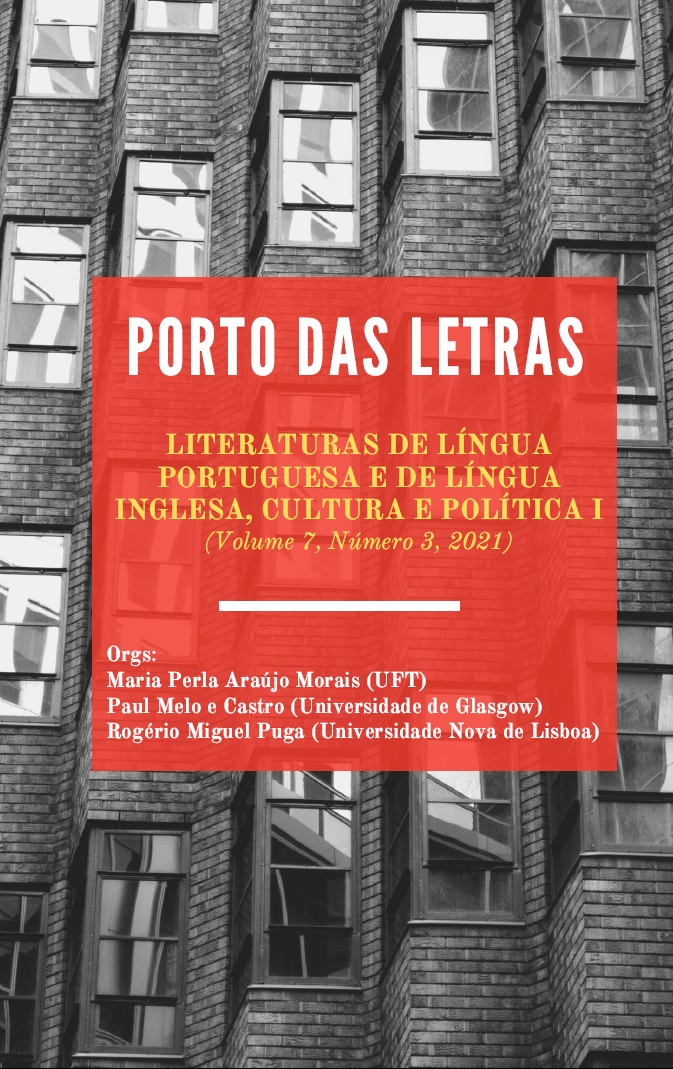O EU NEGRO FOI SILENCIADO; O OUTRO NEGRO SÓ SABER DIZER SIM
O IMAGINÁRIO PORTUGUÊS EM CALEMA: ROMANCE AFRICANO
Abstract
This work presents a reading of the novel Calema: romance africano with the objective of proving that the book is part of: the directive actions of the Portuguese plan called “Ação Psicossocial”,the ideas of Portuguese imperial mysticism and the luso-tropicalism. Reading the book, it was identified that there is a process of silencing the Africans, what begins with the subtitle “romance africano”, since the novel is, actually, written by a Portuguese woman, featured by Portuguese people and with plenty of racist discourses. The conclusion is that the silencing process remains in the whole book. On the first part, there is a black self that is part of the protagonist’s identity but it is eliminated when she becomes and adult. On the second part, the black self is projected to the black other , which is represented by the Angolan black people. They are like children and usually say “yes”. The conclusion was also that the novel contributes to the maintenance of the stereotype of the black people based on the white people’s imaginary.
References
BOSSLET, Juliana Cordeiro de Farias. A cidade e a guerra: relações de poder e subversão em São Paulo de Assunção de Luanda (1961-1975). Niterói, UFF, 2014. Dissertação (Mestrado) – Programa de Pós-graduação em História da Universidade Federal Fluminense do Instituto de Ciências Humanas e Filosofia da Universidade Federal Fluminense.
DÀLLÁ, Djamba. Calema: romance africano. Lisboa: União Gráfica, 1960.
DERRIDA, Jacques. Ulysses gramophone. In: DERRIDA, Jacques. Acts of Literature. New York: Routledge, 1992.
FANON, Frantz. Pele negras máscaras brancas. Tradução de Renato da Silveira. Salvador: EDUFBA, 2008.
KEHL, Maria Rita. Tortura e sintoma social. In: TELES, Edson; SAFATLE, Vladimir (Orgs.). O que resta da ditadura: a exceção brasileira. São Paulo: Boitempo, 2010.
KILOMBA, Grada. Memórias da Plantação: episódios de racismo cotidiano. Tradução de Jess Oliveira. Rio de Janeiro: Cobogó, 2019.
RIBEIRO, Djamila. O que é lugar de fala? Belo Horizonte: Letramento, 2017.
SOUZA,Waldson Gomes de. Afrofuturismo: o futuro ancestral na Literatura Brasileira Contemporânea. Brasília, UnB, 2019. Dissertação (Mestrado) – Programa de Pós-Graduação em Literatura do Departamento de Teoria Literária e Literaturas do Instituto de Letras da Universidade de Brasília.
STAROBINSKI, Jean. A tinta da melancolia: uma história cultural da tristeza. Tradução de Rosa Freire Aguiar. São Paulo: Companhia das Letras, 2016.
Downloads
Published
How to Cite
Issue
Section
License
Os autores concordam com os termos da Declaração de Direito Autoral, que se aplicará a esta submissão caso seja publicada nesta revista (comentários ao editor podem ser incluídos a seguir).

